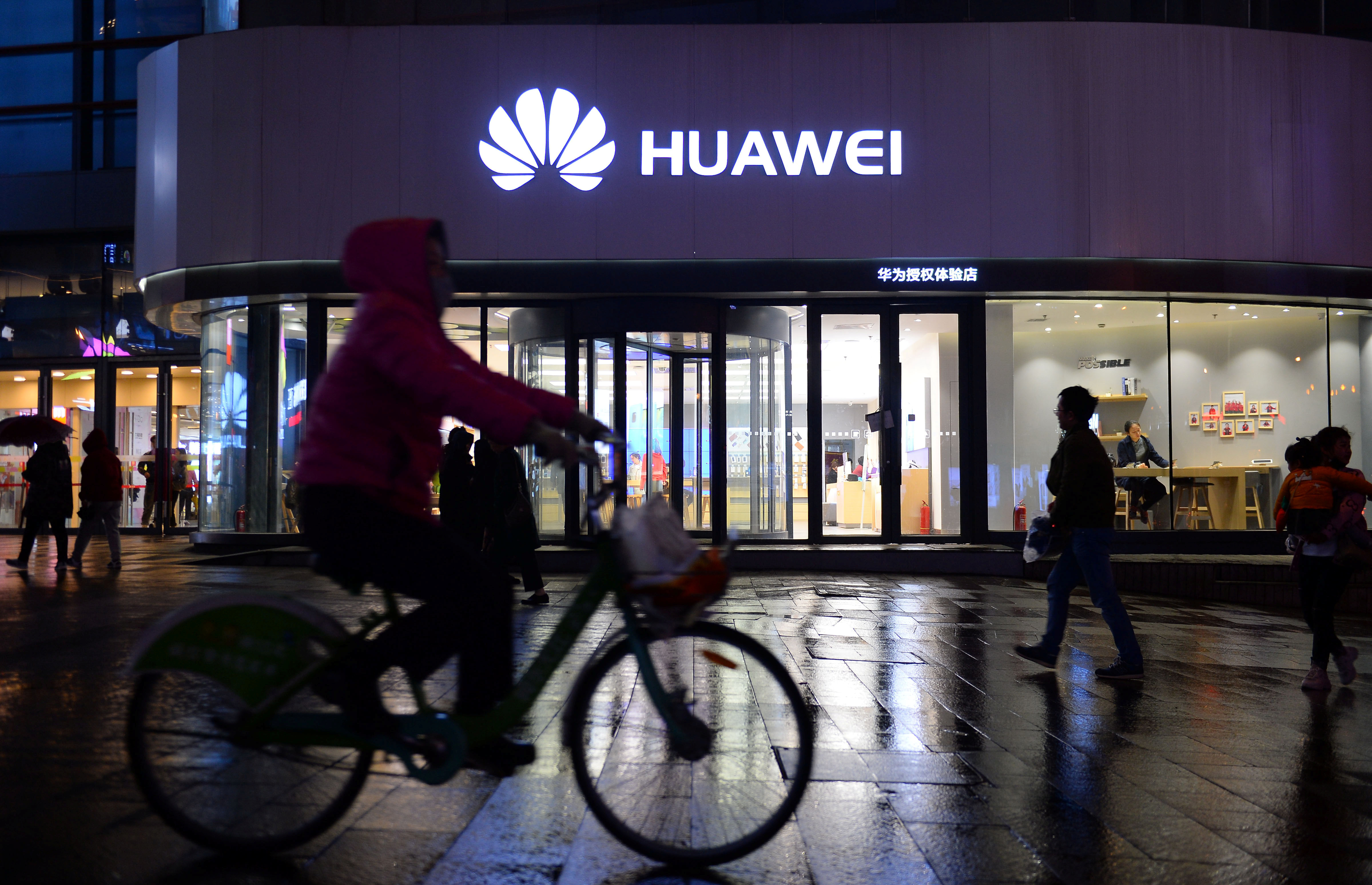U.S. strikes at China's biggest phone maker
What the crackdown means for the future

A free daily email with the biggest news stories of the day – and the best features from TheWeek.com
You are now subscribed
Your newsletter sign-up was successful
The smartest insight and analysis, from all perspectives, rounded up from around the web:
The "tech cold war has begun" in earnest, said Tim Culpan at Bloomberg. The president issued an executive order barring telecom companies from installing foreign-made equipment that could pose a danger to national security — a grenade aimed at the Chinese telecom giant Huawei. Huawei was also added to a blacklist of companies restricted from trade with U.S. corporations, so Google, Intel, and Qualcomm will now need a license from the U.S. government for any exports to the world's second-biggest phone maker. Even if this is "just part of the U.S.'s trade war posturing," it demonstrates to China that it "can no longer rely on outsiders." This could be the impetus for China to accelerate its efforts to "roll out a smartphone operating system, design its own chips, develop its own semiconductor technology," effectively unfurling "a digital iron curtain that separates the world into two distinct, mutually exclusive technological spheres." And since Huawei is leading the race in 5G mobile technology, the U.S. could find itself trailing.
This week, the U.S. said "it would grant a handful of temporary exceptions" to the export ban, said John McKinnon at The Wall Street Journal. "Huawei phones run on Google's Android software," and Google had announced that the ban would make Huawei lose updates to essential apps such as Gmail and Maps. The 90-day reprieve gives Huawei and the U.S. companies that supply it time to plan for disruptive changes. But it's still just a "temporary stay of execution." If U.S. companies are ultimately barred from doing business with Huawei, the hurt will cut both ways, said Alice Su at the Los Angeles Times. Last year, Huawei spent $11 billion on components built by U.S. companies, and losing Google could cripple its overseas growth. But China already has 43 percent of the global smartphone market. And the Chinese won't miss Google's services because the apps are not available there anyway. "Some 1.4 billion Chinese people wake up each day to check WeChat instead of Gmail, navigate with Baidu instead of Google Maps, and watch videos on Youku instead of YouTube."
The Week
Escape your echo chamber. Get the facts behind the news, plus analysis from multiple perspectives.

Sign up for The Week's Free Newsletters
From our morning news briefing to a weekly Good News Newsletter, get the best of The Week delivered directly to your inbox.
From our morning news briefing to a weekly Good News Newsletter, get the best of The Week delivered directly to your inbox.
Huawei anticipated this "day of reckoning" and has been preparing for it, said Li Tao and Meng Jing at the South China Morning Post. The company is already "developing its own chipsets" and working on its own operating systems. It has also stockpiled U.S. parts to "ensure uninterrupted production for six months." Huawei is bigger and better equipped to handle the blacklisting than ZTE Corp., which was similarly blocked from U.S. exports in 2018 before reaching a $1.4 billion settlement with the U.S. government. That's one reason why Trump going nuclear on Huawei is "not worth it," said Bloomberg in an editorial. There are "legitimate reasons to worry that incorporating Huawei gear into America's networks will leave them vulnerable" to spying or sabotage. But instead of taking steps to prevent that, Trump is using Huawei as leverage. That will only "aggravate the current impasse," marginalizing moderates in the Chinese leadership and angering ordinary Chinese, who will see the U.S. as "trying to limit their economic possibilities." Threatening to crush Huawei looks both "disproportionate and deeply unwise."
A free daily email with the biggest news stories of the day – and the best features from TheWeek.com
-
 Tourangelle-style pork with prunes recipe
Tourangelle-style pork with prunes recipeThe Week Recommends This traditional, rustic dish is a French classic
-
 The Epstein files: glimpses of a deeply disturbing world
The Epstein files: glimpses of a deeply disturbing worldIn the Spotlight Trove of released documents paint a picture of depravity and privilege in which men hold the cards, and women are powerless or peripheral
-
 Jeff Bezos: cutting the legs off The Washington Post
Jeff Bezos: cutting the legs off The Washington PostIn the Spotlight A stalwart of American journalism is a shadow of itself after swingeing cuts by its billionaire owner